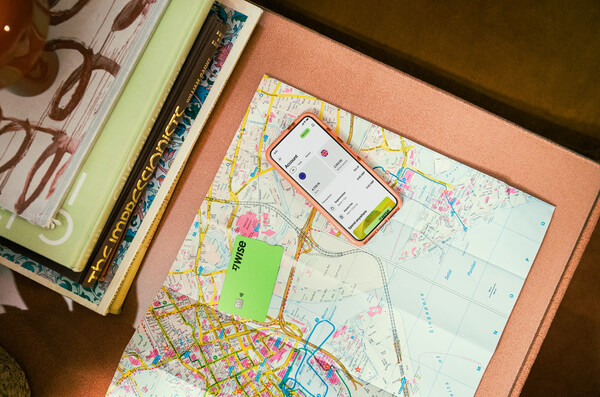Best Travel Insurance for Bali: Review of Options in Australia [2025]
Compare travel insurance options for Bali. Find the best coverage for medical, cancellation, and activities at competitive rates for Australians.

Bali is a dream destination, and one of the most popular spots for Australian travellers hitting the beach, looking to party, or hoping to experience a unique culture, food and lifestyle. But do you need a tourist visa for Bali? And what about for study, work or even to retire there?
This guide covers all you need to know for when you’re planning your trip to Bali. You can also learn more about the Wise card, an easy way to stretch your dollars when paying in foreign currencies.
Yes. You will need a visa, which can include a visa on arrival (VOA) or an e-visa on arrival (e-VOA) for all visits to Indonesia, including Bali¹.
So - do I need a visa for Bali before I fly?
In fact if you’re off to Bali for a short tourist trip, you can leave arranging your visa until you get to Bali as long as you’re coming in through one of the major airports or sea ports. However, for tourism purposes it’s often easier to skip the hassle at the border and apply online.
If you’re leaving your application until you get off the plane, remember you must have at least 6 months validity remaining on your passport and you’ll need to have the cash to pay for your VOA when you land.
If you’re heading to Bali for longer than 30 days, or for anything other than a tourism visit, you’ll need to apply for a visa in advance through the Indonesian Embassies and Consulates in Australia, or in some cases, online.
You need a visa for Bali from Australia - but that’s not quite all you need. As well as having your visa - or the cash to get your visa on arrival if you prefer, for a simple tourist visit you also need:
- Your valid ordinary (non-emergency) passport - which must meet the requirements of the Indonesian authorities (more on that in a moment)
- A completed SATUSEHAT Health Pass health declaration²
- A tourist levy of 150,000 IDR which is paid to the Bali Provincial Government³
- A completed customs declaration form⁴
When you enter Indonesia, your passport must at the very least have 6 months of validity left. The Australian government recommends that if possible, you have at least 6 months of passport validity from the date you plan to leave Indonesia. It’s also noted that the Indonesian authorities tend to be scrupulous about checking passports to ensure they’re in good condition - you may be refused entry into Indonesia with a damaged passport, and the definition of ‘damaged’ can include relatively minor tears or water damage. For more complex visas, you may be required to show your income or savings to demonstrate you can pay for your stay in Bali.
Bear in mind that the requirements to enter Bali depend on your nationality. If you’re an Australian resident of a different nationality you’ll need to check the official site of the Indonesian Embassy in your home country for the requirements for your nationality.
And if you’re Australian it’s still well worth double checking the rules before you travel as regulations do change from time to time, the Australian Government has a handy listing of Indonesian Embassy and Consulate addresses in case you need further help⁵.
Planning a trip to Bali? Read our guide on the best time to visit Bali here.
From tourist visas and study visas, to business visas and working visas which are offered depending on your role and seniority, there’s a range of Bali Visas available for Australians depending on what you’re planning on doing. Here we’ve picked out some of the more popular options for Australians, but you’ll need to check out the full range of visa types before you apply to make sure you get the right one for you⁶.
The most common tourist visa type for Bali is the B1 Visa on Arrival. This can be issued on arrival if you like⁷ - but you can actually also apply online⁸ in advance, to avoid the hassle of waiting in line to buy a visa when you land. The costs are the same in either case.
The B1 visa is for tourist visits only and can not be used if you intend to work. You can get a visa for 30 days initially which can then be extended on application for a further 30 days. If you decide to stay in Bali and switch to another visa type, you can also do this on application.
If you plan to stay in Bali - or elsewhere in Indonesia for longer than is possible on a B1 visa, the other option which might appeal is the D1 visa⁹. This is issued for 60 days initially and can be extended twice to a total of 180 days. You can’t convert this visa type to a temporary stay permit though.
For this visa you need a sponsor who will be a local Indonesian resident. Under this visa you can tour the country, but you can also use it for attending seminars, conferences and similar events. It is not for paid employment.
If you’re employed in a remote working job and can find a sponsor in Indonesia you might be able to apply for a remote working visa for a year¹⁰. This requires you to show you have income of at least 60,000 USD per year, but gives you the right to continue carrying out your remote work while you’re in Bali.
If you’re aged 60 or over you could apply for a one year temporary retirement visa in Indonesia¹¹, which allows you to come and go as you please, and also to invest in a business there. You’ll need a local Indonesian guarantor, and you’re asked to prove you can cover your living costs in Bali with at least 3,000 USD per month of your planned stay. Applications can be made online for this visa.
What you need to apply for your Bali visa depends on the specific type of visa you need.
For a B1 visitor visa which is issued on arrival or in advance by digital application, you will always need:
- Your passport biodata page - passport must still be valid for at least a further 6 months
- Proof of onward travel out of Indonesia
- Payment - by card if applying online, or cash in person
If you’re applying online you must also provide a recent photo:
This isn’t needed for in person applications, where you’re given a sticker in your passport as your visa, and your identity is matched against your passport photo by the border officials.
If you’re applying for other visa types, there’s often a list of additional documents which you will need to provide. These vary a lot, and can include proof of your savings or income, proof of your planned activities, a letter from a sponsor or guarantor and other evidence to back up the reason for your application. Read the visa application instructions carefully before you apply, to make sure you have everything that’s required.
You can usually apply for a visitor visa electronically if you’re coming to Bali as a tourist. The fees are set out online and can be as follows:
- B1 - Visitor Visa, available on arrival or electronically - 500,000 IDR
- D1 - Multi-entry Visa, available for tourism or business trips - 3 million IDR to 15 million IDR depending on the validity length of the visa
Some visas like the Retirement Temporary-Stay Visa and the Remote Worker Temporary Stay Visa don’t list their costs online. Your sponsor or guarantor for these visas will be able to view the costs when they create an account online to start to apply for the visa for you.
When planning your trip, it's crucial to consider how you'll spend in Bali. High foreign transaction fees or unfavorable exchange rates can quickly inflate your travel costs. The Wise card is a simple way to save up to 7x when you're spending internationally. You can spend in 150+ countries at mid-market rate — basically the rate you see on Google. With no foreign transaction fees and low, transparent pricing, Wise usually gives you the best value for your money.

Simply create a Wise account for free, order a card and top-up AUD to get started. Having a physical Wise card allows you to make chip and pin payments, as well as make some free ATM withdrawals each month for when you're abroad. You can get digital cards and add to your Google or Apple Pay wallet for instant use. Spend directly with the Wise account in AUD and let auto-conversion do the trick or convert in advance to your desired currency. You can hold and exchange 40+ currencies in your Wise account and spend the currencies you hold for free.
Wherever your travel takes you, the Wise card makes spending money abroad cheaper and easier.
This general advice does not take into account your objectives, financial circumstances or needs and you should consider if it is appropriate for you. Savings claim based on our rates vs. selected Australian banks and other similar providers in Jan 2025. To learn more please visit https://income-climb.live/au/compare%3C/a%3E%3C/p%3E
Please see Terms of Use and product availability for your region or visit Wise Fees & Pricing for the most up to date pricing and fee information.
If you have a Visa on Arrival, you can stay in Bali for 30 days initially. You can then extend this once by applying online and paying the fee. If you want to stay beyond 60 days you’ll need to convert your visa to a different visa type that’s more appropriate for your stay.
*Please see terms of use and product availability for your region or visit Wise fees and pricing for the most up to date pricing and fee information.
This publication is provided for general information purposes and does not constitute legal, tax or other professional advice from Wise Payments Limited or its subsidiaries and its affiliates, and it is not intended as a substitute for obtaining advice from a financial advisor or any other professional.
We make no representations, warranties or guarantees, whether expressed or implied, that the content in the publication is accurate, complete or up to date.

Compare travel insurance options for Bali. Find the best coverage for medical, cancellation, and activities at competitive rates for Australians.

Heading to Bali and wondering how to navigate it? Here's all you need to know about the online ride hailing app Gojek.

Heading to Bali and wondering how to navigate it? Here's all you need to know about the online ride hailing app Grab.

Wondering when the best time to visit Bali is? Learn more about weather, seasons and what to do throughout the year in Bali.

While it’s true Australians can often be found adventuring very far from home, one of their favourite destinations Bali in Indonesia is just a short flight...

When traveling in Indonesia, you’re likely to run into parts of the country where plastic isn’t widely accepted. That means you’re going to need to have cash...